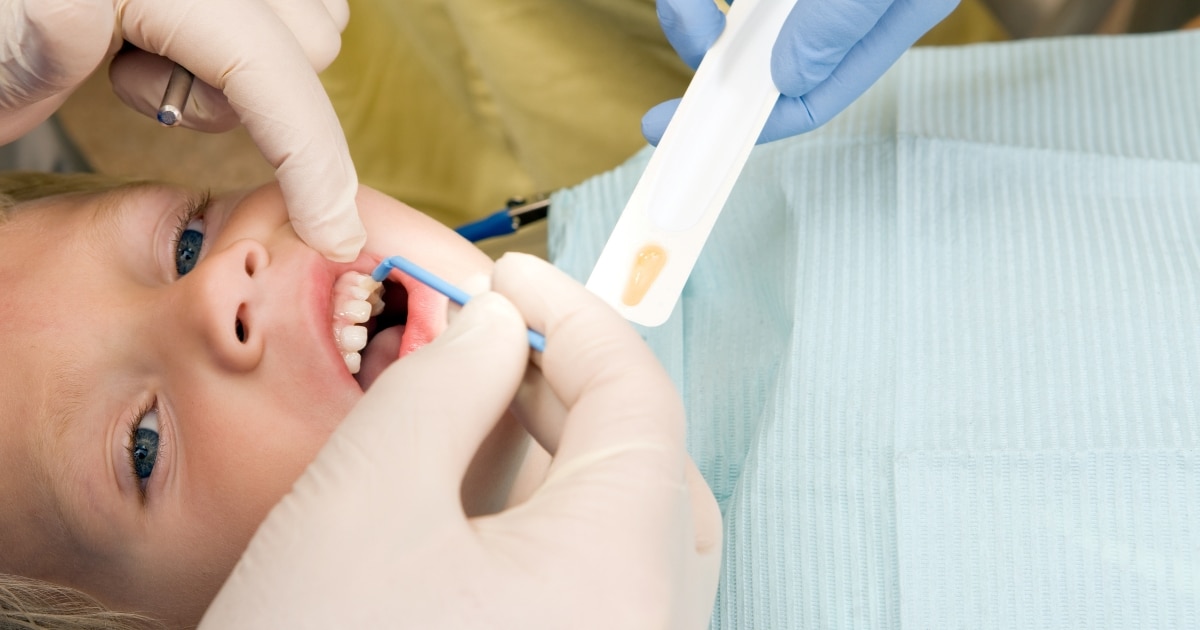Fluoride vs. Natural Treatments: Which Is Best for Toddlers?

When it comes to your toddler’s dental health, choosing the right treatment can feel overwhelming.
Should you stick with fluoride treatments, a common recommendation from pediatric dentists, or opt for natural alternatives that promise gentle care without chemicals?
As a parent, it’s natural to want what’s best for your child’s growing teeth. However, understanding the benefits and potential risks of each option can help you make an informed decision.
In this blog, we’ll dive into the pros and cons of fluoride and natural treatments, so you can decide what’s best for your toddler’s oral care. From strengthening enamel and preventing cavities with fluoride to exploring gentle, natural alternatives, we’ll break down the science behind each choice.
Whether you’re worried about the safety of fluoride or curious if natural methods can do the job, this guide will give you the knowledge you need. Let’s explore both options, weigh their benefits, and help you feel confident in choosing the right path for your child’s smile.
What Is Fluoride and How Does It Work?
Fluoride is a naturally occurring mineral that plays a vital role in preventing tooth decay. It works by strengthening the enamel, the outer layer of your child’s teeth, making it more resistant to acid attacks from bacteria and sugary foods. But how exactly does it help keep cavities at bay? Let’s take a closer look at its benefits.
- Strengthening Enamel: Fluoride remineralizes enamel that has been damaged by acids, helping to repair early tooth decay.
- Preventing Cavities: Studies show that fluoride can reduce the risk of cavities by up to 40% in children, making it an essential tool for pediatric oral care.
- Proven Effectiveness: Fluoride has been scientifically proven to reduce dental decay in children. It protects young teeth as they develop, which is crucial during the early years when permanent teeth are forming.
For toddlers, fluoride treatments provide an extra layer of defense against cavities. Pediatric dentists often recommend these treatments as part of routine checkups to ensure your child’s teeth remain strong and decay-free. Fluoride isn’t just an option; it’s a proven method that supports healthier teeth for your toddler.
What Are Natural Alternatives to Fluoride?
While fluoride is widely recognized for its cavity-fighting benefits, many parents seek natural alternatives. These options offer a gentler approach, focusing on supporting oral health without chemicals. But what exactly are these natural treatments?
- Herbal Remedies: Herbs like neem, licorice, and chamomile are known for their antimicrobial properties. These can help reduce plaque buildup and promote healthy gums.
- Calcium-Rich Foods: Foods like cheese, yogurt, and leafy greens are rich in calcium, which helps strengthen teeth naturally. Consuming these can support tooth enamel development in toddlers.
- Essential Oils: Some essential oils, such as tea tree oil and clove oil, are known for their antibacterial properties. When used in diluted forms, they can help prevent tooth decay and maintain healthy gums.
The Benefits of Fluoride Treatments for Toddlers
Fluoride treatments provide valuable protection for toddlers, helping them avoid tooth decay and maintain healthy teeth as they grow. Let’s dive into why pediatric dentists often recommend fluoride treatments for young children.
- Cavity Prevention: Fluoride strengthens tooth enamel, making it more resistant to acids from food and bacteria, reducing the risk of cavities.
- Effective for Growing Teeth: For toddlers whose teeth are still developing, fluoride provides additional protection to their baby teeth, which later fall out to make way for permanent teeth.
- Scientifically Backed: Pediatric dentists rely on fluoride treatments due to extensive research showing its effectiveness in cavity prevention, even for young children.
Fluoride’s role is crucial in early childhood care. By incorporating fluoride treatments into a toddler’s routine, parents can ensure their child’s teeth stay protected as they grow. Pediatric dentists will tailor these treatments based on the child’s health and oral development, ensuring maximum benefit.
Comparing Fluoride vs. Natural Treatments: What’s Best for Your Toddler?
When deciding between fluoride treatments and natural alternatives, there’s no one-size-fits-all approach. Both options have their advantages, but they serve different purposes. Let’s break down how to choose the best treatment for your toddler’s dental care.
- Effectiveness: Fluoride is proven to be more effective in preventing cavities and strengthening enamel compared to natural treatments. However, combining both methods can provide a balanced approach.
- Age Consideration: Toddlers benefit greatly from fluoride as their teeth develop. For older children, natural alternatives can be a valuable addition to their routine.
- Health Conditions: If your child has sensitivities or allergies to fluoride, natural treatments may be a safer choice.
Ultimately, the best choice depends on your toddler’s individual needs, preferences, and health conditions. A combination of both fluoride and natural treatments may work best, offering comprehensive care for your child’s developing teeth.
When to Choose Fluoride vs. Natural Alternatives?
Knowing when to use fluoride versus natural alternatives requires understanding your child’s unique dental health needs. Here’s how to approach the decision.
- Fluoride for Cavities Prevention: If your child is at risk for cavities, fluoride treatments are the best option for ensuring long-term dental health.
- Natural Alternatives for Sensitive Teeth: If your toddler has sensitive gums or a preference for natural options, consider using gentle, natural remedies like herbal teas or calcium-rich foods.
- A Balanced Approach: Sometimes the best solution is a combination of both fluoride and natural treatments. Fluoride provides powerful protection, while natural remedies promote overall oral health without chemicals.
By discussing your toddler’s oral health with a pediatric dentist, you can determine when and how to incorporate both fluoride and natural alternatives.
Pediatric Dentist Recommendations: Finding the Right Approach
Consulting with a pediatric dentist is crucial in choosing the best approach for your toddler’s dental care. Pediatric dentists have the expertise to guide you toward the right decision, taking into account your child’s individual health and dental history.
- Professional Guidance: Pediatric dentists can assess your child’s risk of tooth decay and recommend the appropriate fluoride treatments or natural alternatives.
- Balancing Both Options: Many dentists suggest combining fluoride treatments with a natural diet to provide optimal oral health.
- Routine Check-ups: Regular check-ups allow the dentist to monitor your child’s oral development and make adjustments to their treatment plan as needed.
Choosing between fluoride and natural treatments for your toddler’s dental health is a decision every parent faces. While fluoride offers proven protection against cavities, natural alternatives can complement your child’s routine for gentle, chemical-free care. By considering your child’s unique needs and consulting with a pediatric dentist, you can find the best approach for their growing teeth. Ultimately, the goal is to ensure a healthy, cavity-free smile, and with the right mix of treatments, your toddler’s oral health can thrive!


